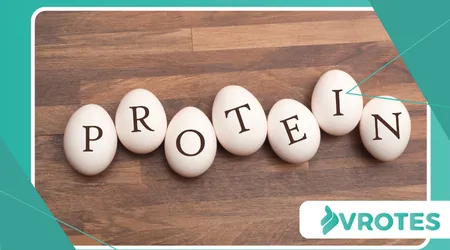High-Protein Breakfast Ideas to Combat Menopausal Fatigue

High-protein breakfast ideas. Menopause brings a cascade of hormonal shifts, primarily a decline in estrogen.
Anúncios
This hormonal fluctuation impacts various bodily functions, including metabolism, sleep patterns, and energy regulation
. Many women experience hot flashes and night sweats, disrupting sleep and leading to daytime fatigue.
Furthermore, estrogen plays a role in mood regulation, and its decrease can contribute to feelings of lethargy and even depression. Addressing these root causes through diet is key.
Protein, often called the building block of life, is essential for muscle repair, hormone production, and maintaining stable blood sugar levels.
Anúncios
During menopause, muscle mass naturally declines, a phenomenon known as sarcopenia. Adequate protein intake helps counteract this, supporting not only physical strength but also sustained energy.
When blood sugar levels fluctuate wildly, energy crashes often follow. Protein slows digestion, providing a steady release of glucose into the bloodstream.
Why Protein Reigns Supreme for Sustained Energy
Imagine your body as a high-performance engine.
While carbohydrates are like quick-burning fuel, offering immediate energy, protein is more like a slow-release battery, providing sustained power throughout the day.
This prolonged energy release is precisely what menopausal women need to combat the notorious energy slumps.
A breakfast rich in protein helps you feel full and satisfied for longer, reducing the temptation to reach for sugary snacks that offer only fleeting energy.
Beyond energy, protein plays a vital role in hormone synthesis. Hormones are chemical messengers that regulate virtually every process in your body.
Read more: Hydration Hacks: Drinks to Keep You Cool During Hot Flashes
While estrogen levels decline, supporting the production of other hormones becomes even more critical.
Amino acids, derived from protein, are the raw materials your body needs for this complex process.
Prioritizing protein at breakfast sets a positive tone for your hormonal balance throughout the day.
Crafting Your Morning Powerhouse: High-Protein Breakfast Ideas
Forget the sugary cereals and toast that leave you crashing mid-morning. It’s time to revolutionize your breakfast routine with high-protein breakfast ideas that truly nourish.
Think beyond traditional eggs. Consider incorporating lean meats, dairy, and plant-based proteins to add variety and ensure you’re getting a broad spectrum of nutrients.
The goal is to create meals that are both delicious and incredibly effective in fueling your body.
One excellent option is a Greek yogurt parfait. Layer plain Greek yogurt (which boasts double the protein of regular yogurt) with a handful of berries and a sprinkle of nuts or seeds.
The healthy fats and fiber from the additions enhance satiety and provide additional nutrients. Another fantastic choice is a savory egg and vegetable scramble.
Load it with spinach, mushrooms, and bell peppers for an antioxidant boost. These simple adjustments can make a profound difference.

Beyond Eggs: Diverse Protein Sources for Your Morning Meal
Variety is the spice of life, especially when it comes to nutrition.
While eggs are a classic, expanding your protein repertoire keeps things interesting and ensures you’re getting a wider array of amino acids and micronutrients.
Think about incorporating legumes, such as lentils or black beans, into a morning scramble or even a breakfast burrito.
Read here: The Menopause Smoothie: Key Ingredients for Skin & Mood
Tofu, a versatile plant-based protein, can be scrambled or baked into savory patties.
Consider a breakfast bowl featuring quinoa, a complete protein, topped with avocado, a fried egg, and a sprinkle of chili flakes.
The healthy fats from the avocado support hormone balance, and the fiber from quinoa aids digestion.
For those who prefer a quicker option, a protein smoothie made with unsweetened protein powder, leafy greens, and a healthy fat source like avocado or almond butter can be incredibly effective.
The Science of Satiety: How Protein Keeps You Full
The feeling of fullness, or satiety, is crucial for managing weight and preventing energy dips. Protein has a remarkable ability to promote satiety, far more so than carbohydrates or fats.
This is partly due to its impact on gut hormones that signal fullness to the brain.
When you feel satisfied, you’re less likely to overeat or crave unhealthy snacks, which can contribute to menopausal weight gain and exacerbate fatigue.
A study published in the American Journal of Clinical Nutrition highlighted that higher protein intake is associated with greater satiety and reduced energy intake in subsequent meals.
++ Forest Bathing: Natural Stress Relief for Hormonal Imbalance
This reinforces the importance of front-loading your protein intake at breakfast.
It’s not just about energy; it’s about setting a nutritional foundation that supports overall well-being throughout your day.
Fueling Your Day: Practical Tips for Protein-Packed Mornings
Integrating high-protein breakfast ideas into a busy schedule doesn’t have to be complicated. Meal prepping can be a game-changer.
Hard-boiled eggs, pre-chopped vegetables for scrambles, or pre-portioned protein powder for smoothies can significantly cut down on morning prep time.

Think about making a large batch of overnight oats with chia seeds and protein powder.
| Protein Source | Protein per Serving (approx.) |
| Greek Yogurt (1 cup, plain) | 20-25g |
| Eggs (2 large) | 12-14g |
| Cottage Cheese (1 cup) | 25-30g |
| Smoked Salmon (3 oz) | 17g |
| Tofu (4 oz, firm) | 10-12g |
| Protein Powder (1 scoop) | 20-25g |
| Black Beans (1 cup, cooked) | 15g |
Consider having a few go-to recipes that you can whip up quickly, even on your busiest mornings.
For example, a simple cottage cheese and fruit bowl with a sprinkle of nuts takes minutes to assemble but provides a significant protein boost.
Remember, consistency is more important than perfection. Even small, incremental changes to your breakfast habits can yield substantial results in your energy levels.
Beyond the Plate: Lifestyle Factors Supporting Energy During Menopause
While nutrition is paramount, it’s part of a larger picture. Regular physical activity, particularly strength training, is crucial for maintaining muscle mass and boosting energy.
Even a brisk walk daily can make a difference. Prioritizing quality sleep is non-negotiable.
Establish a consistent sleep schedule, create a relaxing bedtime routine, and optimize your sleep environment.
Minimizing stress through mindfulness, yoga, or spending time in nature can also significantly impact fatigue levels.
Think of your body during menopause like a well-oiled machine that needs specific maintenance.
Just as a car requires the right fuel, oil changes, and regular check-ups to run smoothly, your body needs the right nutrients, exercise, and rest to thrive.
Neglecting any of these components can lead to breakdowns in energy and overall well-being.
Focusing solely on diet without addressing sleep or stress is like trying to fill a bucket with holes – you’ll never quite get it full.
Empowering Your Menopausal Journey: A New Morning Perspective
Embracing high-protein breakfast ideas is more than just a dietary change; it’s an investment in your overall well-being during menopause.
It’s about empowering yourself to combat fatigue, stabilize mood, and maintain vitality as your body transitions.
The journey through menopause is unique for every woman, but the power of proper nutrition remains a constant.
Why continue to feel drained when simple, delicious changes can re-ignite your inner spark?
Prioritizing your health at this stage of life is not selfish; it’s essential.
By nourishing your body with the right foods, especially at the start of your day, you equip yourself with the energy and resilience needed to navigate all the demands of your life.
This isn’t just about surviving menopause; it’s about thriving through it.
Fueling Your Future with Protein
The impact of menopause on energy levels can be profound, but you are not powerless.
By consistently choosing high-protein breakfast ideas, you lay a strong foundation for sustained energy, improved mood, and enhanced overall well-being.
Remember, small, consistent changes lead to significant results.
Start today, experiment with new recipes, and feel the difference a protein-rich morning can make in combating menopausal fatigue. Your body will thank you.
Frequently asked questions
Why is protein so important for menopausal women?
Protein is crucial during menopause for several reasons. It helps counteract the natural decline in muscle mass (sarcopenia) that occurs with aging and hormonal shifts. It also stabilizes blood sugar levels, preventing energy crashes and reducing fatigue.
Furthermore, protein provides the building blocks for hormone synthesis, supporting overall hormonal balance in the body.
Can I get enough protein from plant-based sources for breakfast?
Absolutely! Many excellent plant-based protein sources are perfect for breakfast.
Tofu scrambles, tempeh bacon, black bean burritos, quinoa bowls, and smoothies made with plant-based protein powder (like pea or hemp) are all fantastic options.
Combining different plant proteins throughout the day ensures you get all essential amino acids.
How much protein should I aim for at breakfast?
While individual needs vary, aiming for at least 20-30 grams of protein at breakfast is a good target for most menopausal women.
This amount is generally effective in promoting satiety and providing sustained energy. You can achieve this with a serving of Greek yogurt, a few eggs, or a scoop of protein powder in a smoothie.
Will eating more protein cause me to gain weight?
Not necessarily. In fact, a higher protein intake can often support weight management. Protein promotes satiety, which can lead to reduced overall calorie intake.
It also has a higher thermic effect of food (meaning your body burns more calories digesting protein than fats or carbs).
However, total calorie intake still matters, so focus on lean protein sources and balance your plate with plenty of vegetables and healthy fats.
